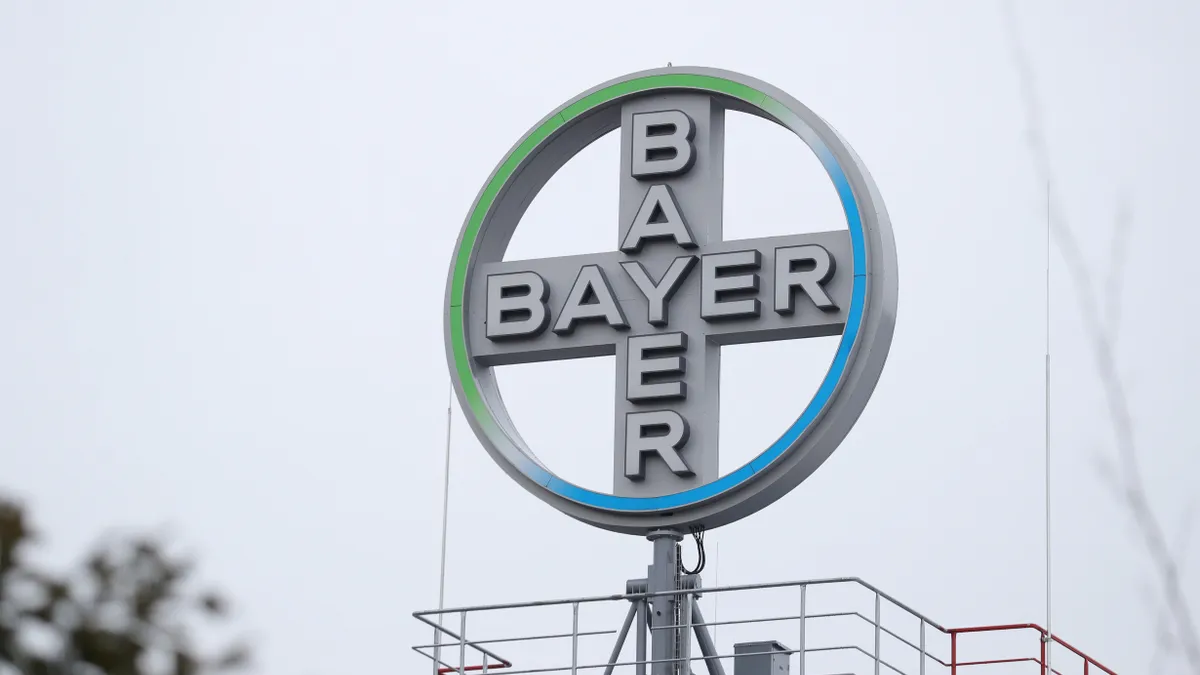Dive Brief:
-
Bayer AG's crop sciences division reported a 1% sales uptick in the second quarter driven by strong demand for glyphosate-based herbicides even as the controversial weedkiller comes under mounting legal scrutiny.
-
Sales of Roundup and other glyphosate-based products totaled 685 million euros, or about $748 million dollars, for the three months that ended June 30. They increased 41% over the same period last year as herbicide prices weakened and shipping patterns returned to normal levels following a volatile 2023.
-
As demand for glyphosate and soybean seeds surged, other parts of the crop sciences division struggled. Bayer saw sales decline 13% for fungicides over last year and 12% for non-glyphosate-based products due to falling prices. Overall earnings fell 16.5%.
Dive Insight:
As Bayer sees higher glyphosate sales, it's also fending off billions of dollars in lawsuits claiming the chemical causes cancer. In recent months, the company has won legal disputes in Australia and North America, where cases have been dismissed in federal courts.
Meanwhile, Bayer is lobbying Congress for protections in the new farm bill that can shield itself from future and pending lawsuits. While a number of cases have been dismissed, thousands of lawsuits remain pending, according to consumer group Drug Watch.
The company recently formed a lobbying effort called Modern Ag Alliance, supported by dozens of national and state industry groups, advocating for the continued use of glyphosate and other crop protection chemicals labeled safe to use by the Environmental Protection Agency.
The group has seen its asks reflected in the House farm bill, which contains a provision protecting Bayer and other ag chemical companies from lawsuits by blocking states' abilities to impose new regulations or penalize firms if they fail to comply with labeling requirements outside those approved by the EPA.
Bayer CEO Bill Anderson said the company is "advocating for the passage of a farm bill in Congress as early as possible."
“We want to see a bill pass that gives American farmers the reliability and the science-based regulation they deserve,” he said. “We will continue to champion their voices."
Lower glyphosate prices have hurt Bayer in past quarters, though a substantial increase in purchase volumes have pushed up sales. The company expects glyphosate demand to again plummet in the second half of the year.
Bayer is in the midst of a complete restructuring after litigation costs and other headwinds drove sluggish results in the past year. In March, he detailed layoffs for 1,500 people, noting that two-thirds of the roles were managerial positions.
To reinvigorate the crop sciences division, Bayer plans to release 10 blockbuster products over the next 10 years. However, litigation costs could continue to hurt the company's ability to reinvest in the business. In the quarter, Bayer spent 28 million euros, or about $31 million, on litigation costs surrounding glyphosate, polychlorinated biphenyls and dicamba.
"We continue to evaluate every appropriate measure to bring closure to the situation, both for our company and for U.S. farmers," Anderson said, "because we need our revenues to go to funding the company's mission, not the litigation industry.”











